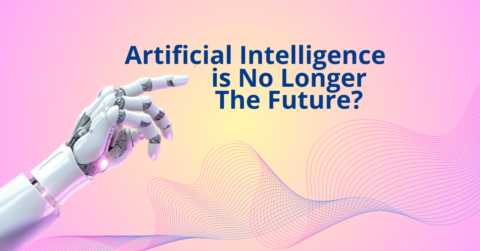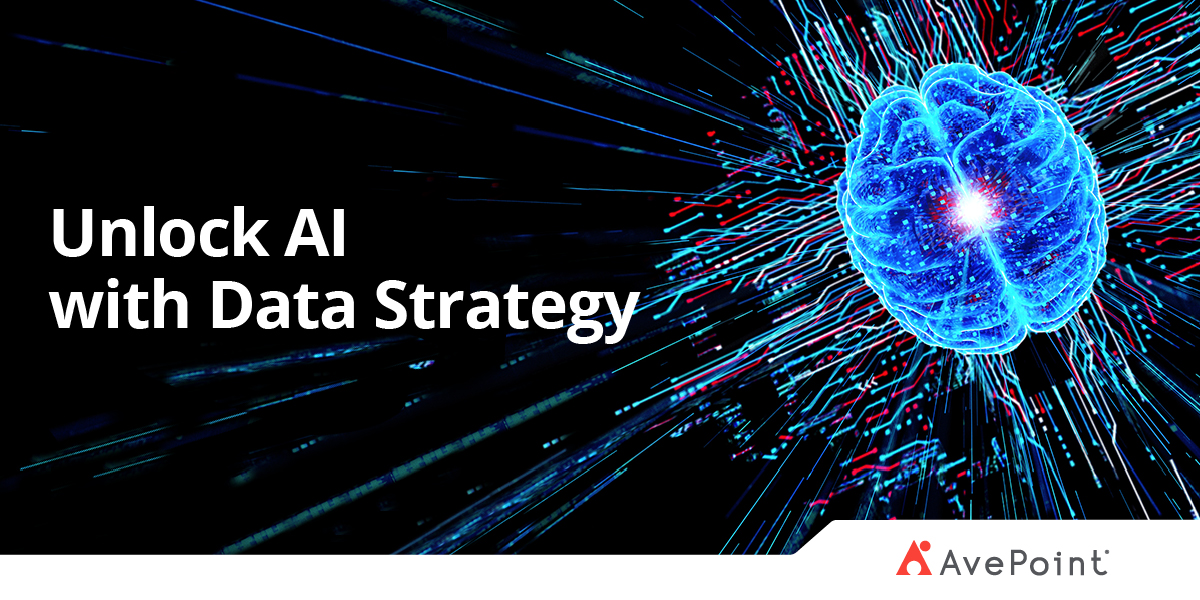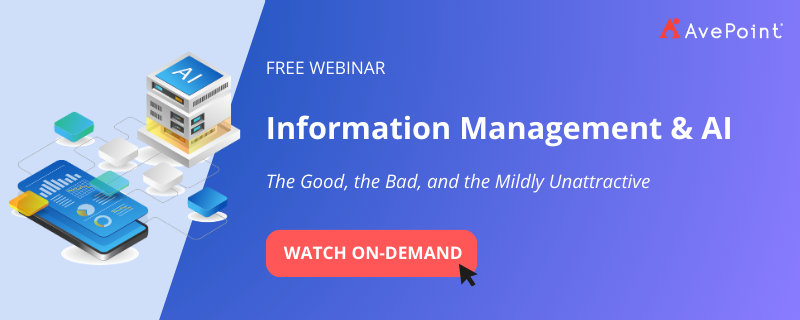Artificial Intelligence (AI) is no longer a distant dream; it’s here, and it’s everywhere – from the latest news headlines to our social media feeds and even in our personal and working lives. In fact, a recent global survey found that 54.6% of organizations are actively engaging and experimenting with AI.
For many information managers, this presents both exciting opportunities and daunting challenges. While information managers play a pivotal role in ensuring organizations can harness the power of AI, they also have valid concerns.
Questions like: Do we have the right technology, what investment do we need to make, how do we use it, what message are we sending, and, most of all, what do we need to do to gain the most from AI while protecting our organization, staff, and customers.
In this article, we’ll explore the importance of AI and three ways information managers can prepare for its impact.
Why is AI Important for Information Managers?
There are reasons upon reasons as to why AI is important – and I could write for days about it, but that would likely bore you – so let’s keep it to the top three:
Data Explosion
IDC predicts 175 Zettabytes (ZB) of worldwide data by 2025. Let’s have a little fun with this…
175 ZB is equivalent to 35,184 billion dual-layer Blu-ray DVDs (these were the “next big thing” in the early 2000s, providing a greater and more “advanced” storage option for movies with better resolution, and so on). If you lined these up, they would reach the moon and back over 20,000 times! Now, take a moment to visualize that.
This vast amount of data will continue to be generated to the point where we’ll look back at our 175 ZB and smile at “how big” we thought it was. This amount of data and the responsibility for managing such a quantity makes the more traditional methods of information management complicated and completely impractical.
AI algorithms are designed to handle the sheer volume of data organizations hold, working at a pace humans simply cannot. They can streamline the analytical elements and provide automation to help information managers sift through vast datasets and extract meaningful insights and trends.
For instance, AI can extract data from your contract management system and compare it to your finance system to identify missed revenue opportunities or discrepancies. AI can also use historical data to interpret and predict future trends, providing valuable insights to support your organization.
Efficient Automation
By using technology to complete those repetitive tasks like data entry, classification, and retention, AI can free up valuable time and resources. While this may feel frightening and trigger “robots are taking over the world” thoughts, it’s important to recognize that AI is not here to replace humans.
Instead, it’s designed to augment and enhance capabilities. By automating these repetitive tasks, AI can help information managers focus on more strategic initiatives, like tackling that data volume challenge, implementing better compliance processes, or even removing those tasks that can give your frontline workers more precious time for critical tasks (…like saving lives).
Improved Data Quality and Governance
AI can significantly improve data quality and governance by tackling tasks that would otherwise be mundane and prone to human error.
For instance, imagine being responsible for quality-checking a field against the profile of every single document in your information management system. It would be a daunting task that would require significant time and resources and still likely result in mistakes or inconsistencies.
Now, imagine you have AI that can identify, check, validate, and remediate this field in real-time (and, of course, based on the rules you train the model with). This not only maintains data quality but helps enforce compliance with data regulations and standards, making sure you are doing everything in your power to protect your organization’s information and data. This is another example of what would be impossible to do with “people power” alone.
Getting Started with AI: 3 Steps for Information Managers
Getting started with AI, especially when investing in a licensed AI like Microsoft 365 Copilot, may feel overwhelming, but taking one step at a time (or one bite of the elephant) will set you up for success.
Here are the first three steps you should take:
Have a clear strategy
Research from McKinsey shows that high-performing organizations that find success with AI have a clearly defined vision and strategy for these technologies that is tightly linked to their broader corporate goals.
Make sure your organization has clearly articulated goals and objectives for AI. Be clear on what AI is expected to achieve: are you looking to improve efficiency, enhance customer experiences, gain insights from data, or achieve regulatory compliance? Having clear use cases of where AI can provide value will solidify the understanding of the business processes that can benefit from AI.
Understand your information
Knowing your information is crucial to ensuring AI can produce the best outcomes. AI doesn’t have the “human” filter that we have. If we “see” a document we know we shouldn’t, we take action to remediate this. AI, however, will determine that you “have access” to the information and provide it to you regardless of ethical considerations. This not only exposes information that should not be exposed but can put your employees in precarious positions with access to information they shouldn’t have.
It’s important to be aware of your information’s security and risk profile, including Personally Identifiable Information (PII) or Sensitive Personal Information, external sharing or anonymous links, broken inheritance, and the list goes on. Then, establish a governance framework and structure that meets AI’s needs and addresses gaps identified in your information audit (spoiler: if you haven’t already, you should definitely undertake an information audit).
Don’t forget your people
While technical considerations are important, it’s critical to consider the people involved in AI initiatives. Make sure your organization has AI experts who are up to date with the continual advancements of AI. Foster collaboration between different departments to ensure AI initiatives align with business needs and comply with any regulations that you may not be aware of.
Most importantly, keep staff informed of what is happening and build or engage in training programs to prepare them for the impact of AI. This will give them confidence in the technology and help them understand how to work alongside it effectively.
The Future is Now: It’s Time for Information Managers to Embrace AI
As AI continues to redefine the way we manage and leverage information, it’s vital to ensure that information managers feel supported and are prepared for this ever-evolving technological shift.
Embracing AI enables you to harness the power of data and information, enhance decision-making processes, and drive organizational innovations in whatever way that supports your business objectives. By staying ahead of the curve, information managers not only ensure the efficiency of your current practices but also position themselves as indispensable contributors to the success of your organizations in the future.
The time to prepare for AI in information management is now, and the benefits are undoubtedly worth the investment.
AvePoint helps organizations create the foundation to maximize the value of AI in their business operations. Discover how AvePoint can help you on your AI journey.



